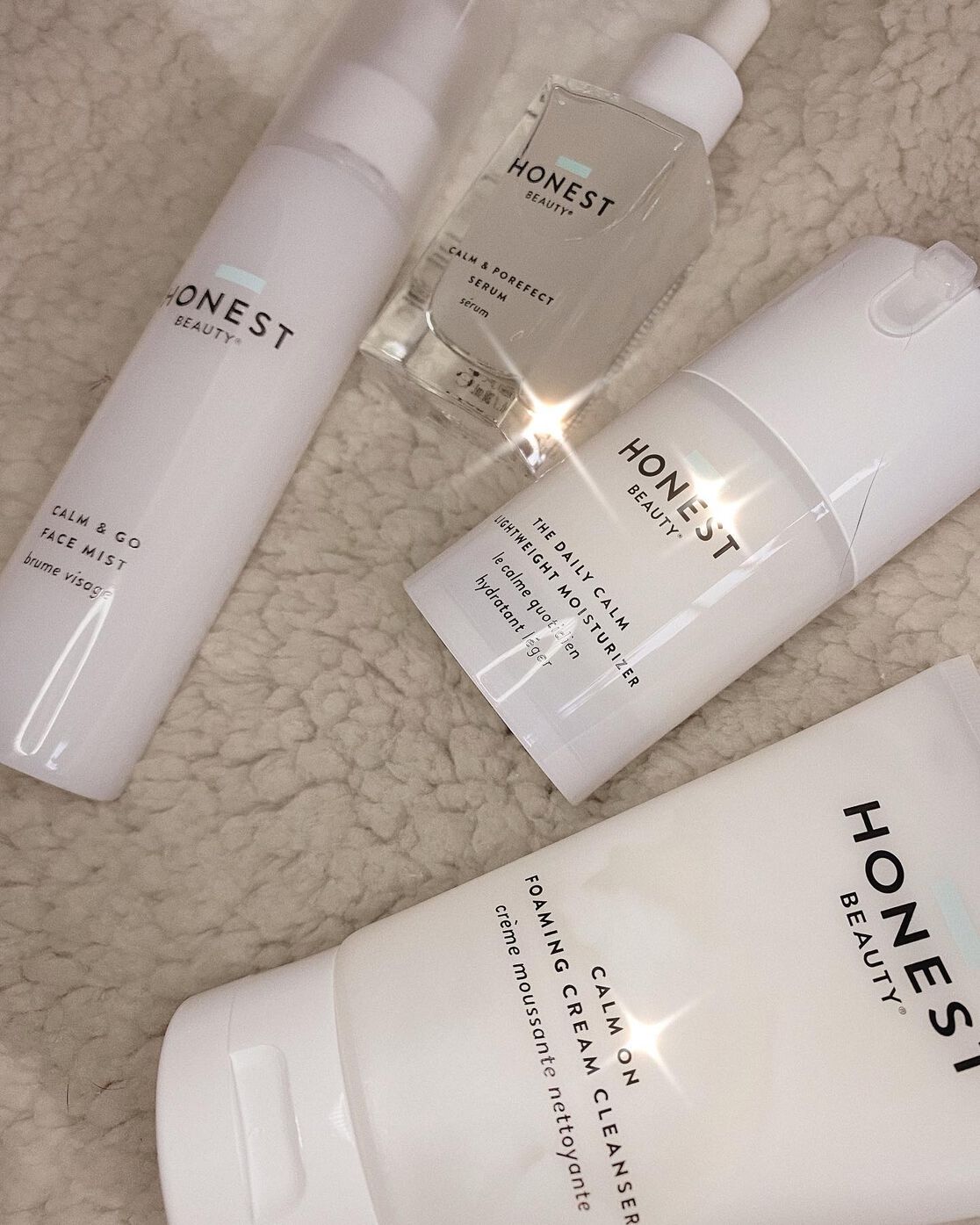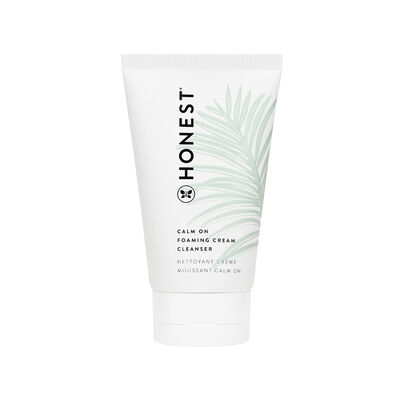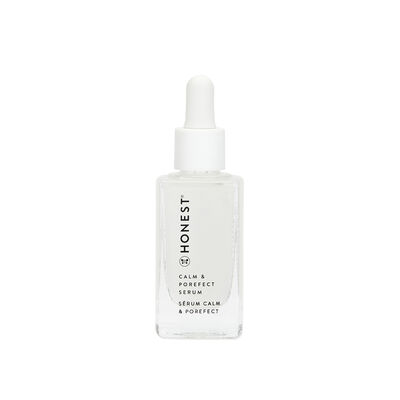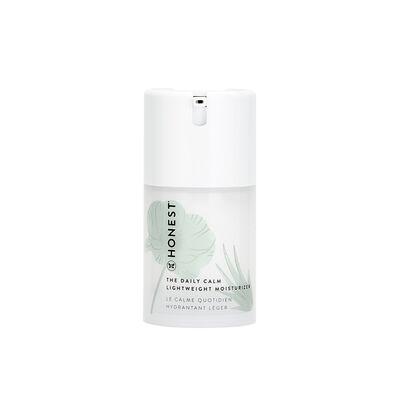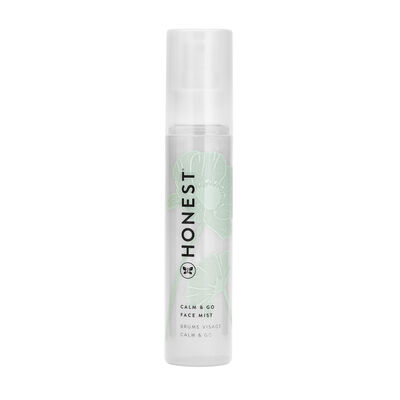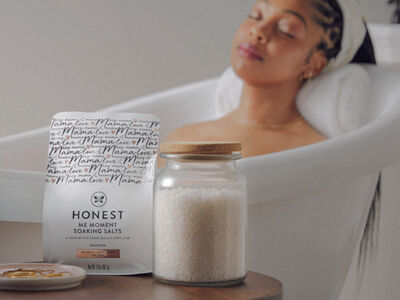Image shared by @liliharieck
Sensitive skin is something that can plague anyone at one time or another. You can have a bad allergic reaction to something that you never had a reaction to before, and all of a sudden, you have sensitive skin.
Meanwhile, others may live with sensitive skin daily and have to take constant precautions not to exacerbate it or trigger a flare up. That’s why it’s so important to to learn how to care for sensitive skin properly and be consistent with your routine.
Since there is no single “test” that can specifically determine whether you’ve got sensitive skin or not, it’s typically determined based on the different sensitive skin symptoms you present.
Assessments are made based on interpreting the kind of sensitive skin symptoms you are experiencing and trying to discover what underlying issues or allergens may be triggering them. It’s important to pay attention to how your skin reacts to suspected triggers like environmental stressors, chemicals in household cleansers and fabric softeners, fragrances or dyes that can be present in certain products.
Skin Types: What is Sensitive Skin?
Skin that’s dubbed “sensitive” has a natural protective skin barrier that has been compromised, causing dehydration and allowing irritants to penetrate deep into the skin layers. This is because this person’s skin type is prone to inflammation and skin irritation. Unfortunately, sensitive skin types may aggressively react to certain things that other skin types don’t have a problem with. Frustrating to say the least!
Sometimes sensitive skin can be a symptom of underlying skin conditions.
These conditions may be exacerbated by common things like exposure to UV rays, or harsh ingredients often found in soaps, cosmetics and household cleaners. If you are a sensitive skin type, you might experience skin redness, flaking, dryness, itching and other uncomfortable reactions in response to these triggers.
Your skin type varies from person to person as much as any other physical feature. Your genes play a role in what kind of skin issues you inherit, and so does your age. As you age, your skin type can even change as your hormones fluctuate and your skin responds to the environment you live in. Daily skincare routines and things like weather conditions can even affect your skin.
Identifying Your Skin Type
Understanding how to determine your skin type is essential to properly caring for it and nourishing it as well as keeping it looking beautiful, glowing, and healthy.
You want to be sure that any skincare product you use is designed for your skin type. Otherwise, you could potentially create more problems than you solve. It wouldn’t be good to use products intended to dry up excess oil if your skin is already dry, for instance.
It would be counterintuitive and make your problem worse. However, if you know you have dry skin, be sure you understand how to hydrate skin properly and which moisturizing products to use so you don’t make the problem worse.
This is particularly true if you have more sensitized skin. You have to check every ingredient carefully with sensitive skin because anything from laundry detergents and household cleaners, to even shampoos can possibly trigger an allergic reaction.
Step 1: Determining if You Have Normal, Dry, or Oily Skin
This process is relatively simple and should give you a good indication of what your primary skin type could be. However, keep in mind that everyone’s skin is different so this process will not always indicate your skin type.
- First, wash your face thoroughly.
- Then, pat it dry and leave your skin bare for about 30 minutes. Don’t even apply any moisturizer! (We know, you’re so tempted.)
- After the 30 minutes concludes, examine your cheeks, chin, nose, and forehead carefully for any oil or shine.
- If you don’t see any oil or shine, and your skin feels tight and dehydrated, your skin type is likely dry.
- If you find your nose and forehead tend to look shiny, your skin type is likely normal or combination.
- If you find your cheeks, in addition to your nose and forehead look shiny, your skin type is likely oily.
Step 2: Determining if You Have Sensitive or Non-Sensitive Skin
There’s no process to this one, but identifying whether you have sensitive skin isn’t all that difficult. Skin that isn’t sensitive typically won’t respond to triggers the way sensitive skin does.
If you have a more sensitive skin type skin is sensitive, it often:
- Reacts to detergents, soaps, fragrances, and certain skincare products.
- Reacts to things like sunlight, hot or cold air, and harsh winds.
- May feel dry and possibly flake frequently.
- May look red and inflamed.
- Might itch annoyingly or break out red bumps.
- Might flush red, develop a rash, have dry skin patches, or even show dilated blood vessels.
Additionally, if you suffer from eczema, rosacea, or any other underlying skin condition, this may indicate that you may have sensitive skin. It's important to note that you can have sensitive skin and still be one of the three main skin types. So you can have oily skin and be sensitive at the same time. That just means you have to be very careful in selecting your skincare products!
What are Common Triggers for Sensitive Skin?
Since your skin’s protective barrier function is compromised, your hypersensitive skin can be triggered by even the most innocuous of things. However, there are some things that are quite common.
Pollution
In today’s world, there’s no getting around it. Our atmosphere is full of pollutants. Smoke from cars and chimneys, harsh chemicals from factories, oil dumps in the ocean, and toxins that leach into our water supplies. It’s difficult to escape. All of these harmful elements can seep into the layers of skin layers and cause breakouts and inflammation.
Weather and Seasonal Changes
As the seasons change, pollen counts in the air increase, which is a common allergen for many people. Hot weather can cause dehydration, which means your skin starts to produce excess oil to make up for the loss of moisture. Meanwhile, cold weather may often be a source of dry, flaky patches on the skin. These flaky patches can weaken your skin to outside forces and cause discomfort.
Harsh Chemicals
Many of your favorite household products often contain harsh chemicals that are not very suitable for people with skin sensitivity issues. Whether it’s your dish detergent, your laundry detergent, or some other harsh chemical that your skin is exposed to, the result can be skin redness, irritation, itching, and other uncomfortable symptoms. These help evoke a potential allergic response on a smaller scale, rather than dangerously applying the product onto your entire body, we also suggest wearing gloves when using these household products in case you have any sensitivity to them.
Synthetic Fragrances and Dyes
Many skincare products contain ingredients like synthetic fragrances and dyes.
How Do You Get Rid of Sensitive Skin?
Unfortunately, it’s impossible to get rid of sensitive skin completely. However, by figuring out your potential triggers and taking steps to avoid them, as well as taking steps to soothe your irritated skin, you can help manage and minimize the severity of your skin sensitivity. Here are some tips to help soothe your sensitive skin:
- Be sure to moisturize your skin regularly to minimize any chances of dryness and dehydration.
- Use skincare products designed for sensitive skin, and read the labels carefully to ensure all products you use are free of sulfates, artificial fragrances and dyes, and other harsh chemicals.
- Incorporate nourishing oils into your skincare routine. Examples of oils for your skin include:
- Coconut oil
- Jojoba oil
- Olive oil
- Hemp seed oil
- Be sure to apply a skincare mask made with natural ingredients like avocado, honey, shea butter, aloe vera gel, and oatmeal regularly.
- Hydrate properly to bring forth that beautiful glow from the inside out.
- Eat a healthy, balanced diet and avoid things like refined sugars. Apply sunscreen daily, such as our Self Defense Mineral Sunscreen Fluid SPF 34, to protect your skin from harmful UV rays. Try to opt for sunscreens that are mineral-based, like zinc oxide, instead of a chemical sunscreen as some people can be sensitive to these.
Sensitive skin can be extremely frustrating, but once you determine your main skin type, you can look for suitable skincare products with ingredients that nourish and pamper your skin without causing undue stress. Honest is here to help you find products best suited for your sensitive skin. With time and consistency, you will have a healthy glow in no time.
Sources:
https://www.ncbi.nlm.nih.gov/pmc/articles/PMC6715121/
https://www.medicalnewstoday.com/articles/what-type-of-skin-do-i-have#summary
https://pubmed.ncbi.nlm.nih.gov/28195077/
https://www.tatcha.com/blog/How-to-determine-your-skin-type.html
We aim to provide you with the most honest and credible information possible. This article was reviewed for accuracy by The Honest Team and was written based on trusted sources that are linked at the bottom of the article.
blog_review_statement